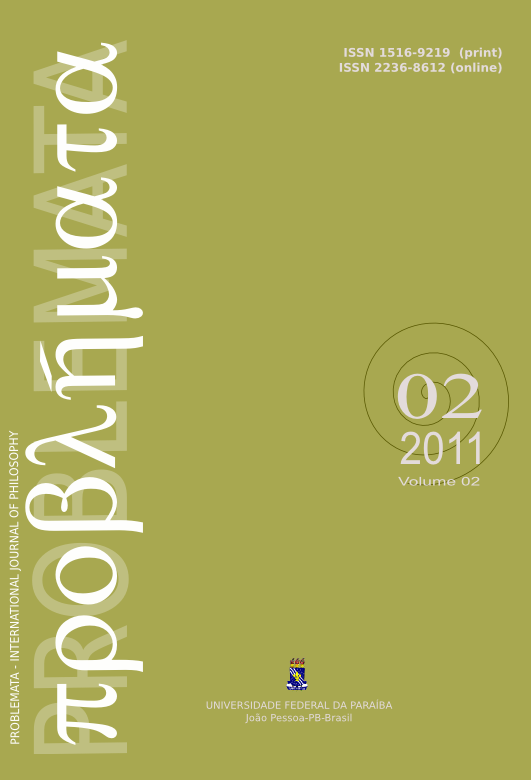THE PROBLEM OF FORBIDDING IN ETHICS<a href="http://dx.doi.org/10.7443/problemata.v2i2.10900"><i> <b>[doi: 10.7443/problemata.v2i2.10900]</b></i></a>
DOI:
https://doi.org/10.7443/problemata.v2i2.10900Keywords:
Banning, moral, obligation, philosophy, societyAbstract
This essay deals with the problem of banning in ethics and morality. The author believes that the deficiency of effectiveness of ethical and moral proposals that have been developed throughout history respond to the fact that lots of prohibitions rather than encouraging a virtuous moral behavior of the human beings provoke and stimulate the rejection of ethical rules imposed by society. Standing from a philosophical position, but aided by disciplines such as psychiatry and psychology, the occurrences in which human nature leads him to proceed contrary to what the moralists seek is examined. Besides, it is argues that many proscriptions and moral obligations should be discarded for unnecessary and counterproductive.
Downloads
Download data is not yet available.
Downloads
Published
2011-11-18
Issue
Section
Papers
License
Authors who publish with this journal agree to the following terms:
- Authors retain copyright and grant the journal right of first publication with the work simultaneously licensed under a Creative Commons Attribution License that allows others to share the work with an acknowledgement of the work's authorship and initial publication in this journal.
- Authors are able to enter into separate, additional contractual arrangements for the non-exclusive distribution of the journal's published version of the work (e.g., post it to an institutional repository or publish it in a book), with an acknowledgement of its initial publication in this journal.
-
- Authors are permitted and encouraged to post their work online (e.g., in institutional repositories or on their website) prior to and during the submission process, as it can lead to productive exchanges, as well as earlier and greater citation of published work (See The Effect of Open Access).





